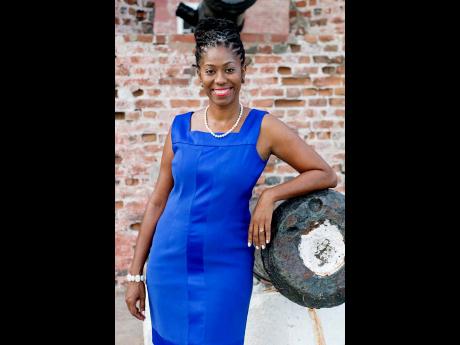Earth Today | Stakeholders welcome regional deliberations on special 1.5 report
LOCAL STAKEHOLDERS have welcomed news that the Caribbean Community (CARICOM) is to consider the recently approved Summary for Policymakers (SPM) of the Special Report on Global Warming of 1.5 degrees Celsius, ahead of the international climate talks in Poland in December.
Information from the CARICOM Secretariat is that CARICOM members will participate in preparatory meetings for the upcoming December Conference of the Parties to the United Nations Framework Convention on Climate Change, between November 12 and 14, in Barbados.
The CARICOM meeting - which will take the form of a two-day technical meeting and a one-day ministerial - is to, among other things, consider the SPM and a statement issued post the event.
"I think it is a good thing that CARICOM is recognising the report and examining its significance for the Caribbean, because it has particularly significant findings for the region and, of course, there is the history of the report and the strong link to Caribbean efforts," noted Professor Michael Taylor, dean of the Faculty of Science and Technology, UWI, Mona,? and coordinating lead author for the special report.
"What I am hoping is that some of those significant findings, which carry stronger and different messages than we have previously heard on climate change, will come home to the regional leadership and spiral into more action within their respective countries and on the global scene," he said.
"After we recognise the report and make the statement, we now need to take the report and make the report work for us - with mainstreaming, planning, mitigation and adaptation, which is what this report is saying is needed in the region. We need to begin to see that. But also we need to step up the global lobby," Taylor, who also has responsibility for the Climate Studies Group Mona, and is one of the drafting authors for the SPM, said further.
CARICOM meeting good news for islands
Development communications consultant Indi Mclymont-Lafayette, who has followed and participated in the international climate talks as a journalist and civil society advocate, agreed with Taylor.
"It's good news that the dialogue is starting. The key now is what actions will come out of that and how other stakeholders and decision-makers will be mobilised to support the efforts," said Mclymont-Lafayette, who is managing director for Change Communications.
Their sentiments were echoed by head of Environmental Solutions Limited, Eleanor Jones, herself a development and environmental management professional.
"I am pleased, as the findings are critical for us in the Caribbean. Development in each territory has been set back almost annually by extreme weather events - floods, drought, storms, hurricanes. Budgets are derailed and development funds from national budgets, as well as external assistance, have to be diverted to reconstruction and response. Domestic and export agriculture and livelihoods suffer. Flooding is pervasive. Extended dry seasons are also occurring more frequently. Climate variability and change will exacerbate these conditions," she said.
POVERTY
"Our goal for poverty reduction will continue to be stymied, as individual losses are not compensated by insurance. We pay scant attention as governments to the true cost of these events to individual citizens, as well as public assets. If I lose my crops, I lose 100 per cent of expected income, no matter how small," Jones added.
"Building climate resilience starts with understanding and acceptance of climate risk. It is important that leaders in CARICOM begin true conversation towards genuine and sustained action on what is the 'new normal' for our countries and citizens, as well as for all small island developing states (SIDS) and the rest of the world," she said further.
SIDS are counted among the most vulnerable to a changing climate, with the devastation of the last hurricane season proof of the Caribbean's own susceptibility to impacts of extreme weather and sea level rise. There is, too, the prevailing risk to health, given increasing temperatures that fuel the prevalence of vector-borne diseases, such as dengue.
"Every aspect of our lives must be factored into building adaptation and coping strategies. Knowledge is power. The information has been presented to us in stark terms. We must adopt and apply it as best we can and with a great sense of urgency," Jones noted.
The Special Report on Global Warming of 1.5 degrees Celsius was approved by the Intergovernmental Panel on Climate Change on October 6 in Incheon, Korea. It is to be a key scientific input into the global climate talks set for December 2-14 in Katowice, Poland, which will see the review of the Paris Agreement.



